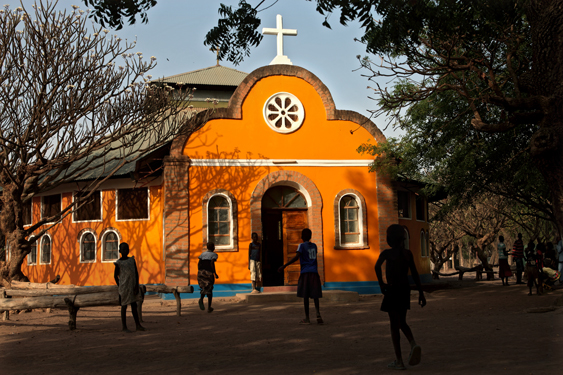Catholic youth in Rumbek complain foreigners have taken their jobs
March 27, 2012 (RUMBEK) – Youth in South Sudan Lakes State have told administrators of the Catholic Church Diocese of Rumbek that they will go on strike and shut down Catholic Radio Goods News if their issues are not addressed.

Church youth leaders told Sudan Tribune that they are unhappy the Church has allowed foreigners to control senior positions within the finance and the radio station. South Sudanese workers at the station claim they are treated badly by their East African colleagues.
In October 2011, Catholic youth went on strike closing down the radio station asking the diocesan administrator to address the grievances between the foreigners and national staff.
However, the diocesan and Lakes State government turned down their requests asking the youth group to allow the radio station to resume its operations. A youth group representative, Johan Marier Mabeny, told Sudan Tribune that the radio stations is being dominated by Kenyans at the detriment of local staff. He said that South Sudanese has the education and skills to do the jobs.
Marier said in September 2011 that a number of attempts have been made to reconcile the Rumbek youth with church leaders have failed.
He claimed that even positions such as cook as drivers were being taken up by Kenyan expatriates who were brought in by their relatives.
Marier said that the Church resources could be better spent, claiming that the Church pays for then to fly between South Sudan and Kenya three times a year.
He said that employing Kenyan’s was understandable while the Church was based in Nairobi during the North-South civil war, which ended in 2005 and led to South Sudan’s independence last year.
Marier appealed for the Church to employ local people now they have returned to South Sudan.
(ST)
